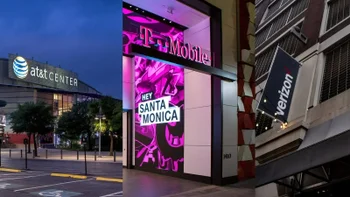AT&T is not in a rush to roll out LTE-Unlicensed

Expect to see increased chatter about LTE-Unlicensed in the near future. If you do not know what LTE-U is, it is simply implementing LTE service via the same unlicensed airwaves that consumers use for other short range solutions, like Wi-Fi, and cordless phones.
Like consumer electronics using the spectrum, LTE-U is implemented using similarly powered small cells. The trick is ensuring that these services do not interfere with consumer devices already in use.
Deploying LTE in this manner has already begun in Japan. NTT DoCoMo has rolled out “License Assisted Access” LTE, also called LAA-LTE. T-Mobile has outlined its plans to leverage the vast amounts of underutilized spectrum in the unlicensed space in collaboration with Nokia Networks.
AT&T is not pursuing a fast track with this solution however. It is not that the carrier does not support the use of the unlicensed space, indeed the carrier is all for it. AT&T’s primary concern is assuring “fair use to any technology vying for that spectrum, i.e. Wi-Fi,” according to AT&T’s Tom Keathley. AT&T operates more than 30,000 Wi-Fi hotspots around the country for its customers at familiar locations like coffee shops, hotels, airports and other locales.
LTE-U is not an established standard yet, so proponents of Wi-Fi are concerned that carrier use of the space would end up dictating how much spectrum is truly available to consumer solutions, and how much would be devoted to LTE services controlled by the carriers. As it is right now, LTE-U does not have a “listen before talk” protocol, meaning that current gear does not see if the channel is being used or not before it begins transmission.
LAA-LTE is shaping up to be a standard and it does embody a “listen before talk” methodology. For the carriers however, LAA-LTE requires a change to the written standard that governs LTE in general.
“I’m not saying that that won’t be fair use. It may. It’s not guaranteed and we have finished our evaluation of the ‘U’ piece of whether or not that will guarantee fair use,” said Keathley.
He also noted that it may be better to wait for LAA standards “if LAA comes quickly.”
source: FierceWireless
Deploying LTE in this manner has already begun in Japan. NTT DoCoMo has rolled out “License Assisted Access” LTE, also called LAA-LTE. T-Mobile has outlined its plans to leverage the vast amounts of underutilized spectrum in the unlicensed space in collaboration with Nokia Networks.
LTE-U is not an established standard yet, so proponents of Wi-Fi are concerned that carrier use of the space would end up dictating how much spectrum is truly available to consumer solutions, and how much would be devoted to LTE services controlled by the carriers. As it is right now, LTE-U does not have a “listen before talk” protocol, meaning that current gear does not see if the channel is being used or not before it begins transmission.
“I’m not saying that that won’t be fair use. It may. It’s not guaranteed and we have finished our evaluation of the ‘U’ piece of whether or not that will guarantee fair use,” said Keathley.
He also noted that it may be better to wait for LAA standards “if LAA comes quickly.”
source: FierceWireless
Follow us on Google News













Things that are NOT allowed:
To help keep our community safe and free from spam, we apply temporary limits to newly created accounts: